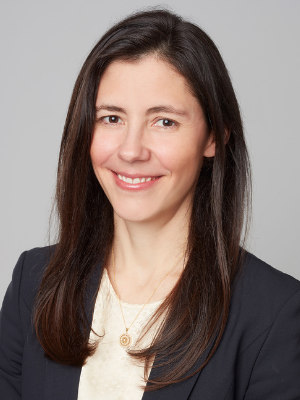 (Spotlight on Asia) “If you have the right skills and are prepared, don’t be afraid when the opportunity comes to you. No one can tell you it’s not possible,” says Wanda Woo on being both a Shearman & Sterling partner and mother of three children.
(Spotlight on Asia) “If you have the right skills and are prepared, don’t be afraid when the opportunity comes to you. No one can tell you it’s not possible,” says Wanda Woo on being both a Shearman & Sterling partner and mother of three children.
Defining Her Own Growth Curve
Woo entered capital markets as a paralegal in 2004 after attaining a double degree in English literature and economics from the University of British Columbia. She planned to go the U.S. for her JD, but her trajectory was redirected after her father’s heart attack compelled a return to Hong Kong. Working as a paralegal with Linklaters in Hong Kong while studying undergraduate law via the University of London was not easy but her mentor at that time taught her to never underestimate herself.
“I made it, and it was painful, but I feel very proud of that process in the end,” says Woo. “I saw early on what I was capable of.”
Woo went onto join Shearman & Sterling for eight years as an associate, during which she had three children, and then after leaving for four years, she decided to rejoin the firm.
“It was destiny to have the opportunity to rejoin Shearman & Sterling as a capital markets partner. The timing couldn’t be better. The firm has really been the only place that has truly been very important for me throughout my career path. It’s like coming back home.”
Being a Mom of Three And a Partner
Woo confesses that she thought of resigning from Big Law after her first child, worried she would not be able to meet the travel and work demands, but instead the partner she worked for at the time encouraged her to instead take flexible arrangements.
“I’ve always found Shearman & Sterling to be very gender-equal, where male partners are working well with female partners, and very supportive. I couldn’t imagine another place that would have supported me so much when I was working in such an intensive field with three children.”
“It can be challenging, but I wouldn’t personally be a better mom if I was around 24/7,” says Woo of the multiple roles she balances.
She adds the importance of loving what you do, especially if you are carving your own possibilities: “If you have the passion for the work, there’s always a way. Pick the right field, pick the right industry, pick the right job that you have passion for.”
Doing The Work that Fulfills
“I always have felt like I belong to this industry,” says Woo. “You are always meeting new people or working on new deals or learning different business models. I really like transaction work because it’s a people business at the same time. That ability to contribute is what keeps me going – the work of helping corporate entities get listed and then being able to continue that relationship onwards.”
Woo feels most fulfilled by the companies she has helped bring to IPO status, to become publicly traded companies, and the amazing colleagues and clients she’s had a chance to work with over the past 17 years.
“For better or worse, I always say I am a bit obsessive-compulsive. I’m very motivated to finish the work, be on top of it, and respond quickly to inquiries or client requests,” says Woo. “Partially, I want to be able to return home to my kids. So, this obsessive quality has also helped me be efficient as a partner while also being a mother.”
Woo is especially good at handling conflict between stakeholders while also advising her clients through transactions legally – a skill of calmness that she picked up from watching partners that inspired her.
With three kids growing up to inherit this world, making a positive impact through ESG is important to her. “How to make an impact, give back to the environment and contribute to society is something I’m learning more about and sharing more about, beyond the notions of making money or having year-on-year growth.”
“In transactional capital markets law, the issuers may not know that ESG is something that will help them in the long run. But when we bring the ESG frame, along with the regulators, to these companies, they start to realize the impact they can make to society through these measures and policies,” notes Woo. “This is something to start earlier rather than later, so it becomes a part of your corporate culture, and is inviting to other stakeholders.”
Networking, Authentically
Since becoming a partner, Woo has moved from being more execution-focused to developing and stewarding client relationships. Having once pushed herself out of her comfort zone to seek partnership has helped her to push herself yet again.
“As a partner, people will ask you questions 24/7 and you have to be responsive. But the bigger growth area is to compel people to come back to you for more work and to assure them that you have them in your mind and heart as a client so you build that long-term relationship.”
“Now that I’ve been a partner for several years, I’ve realized networking is not really about wining and dining,” observes Woo. “It’s really about being authentic, reliable and trustworthy. I’ve always had these qualities I feel, but I had to learn to show people.”
Being Inspired and Inspiring Yourself
Woo has been most inspired by the lawyers before her that demonstrated integrity: “Being a good lawyer is never enough. They showed me what it means to be truly respectable and professional in all acts. They were doing the marketing work and actively engaging in the real work. It was never just about getting deals. The common quality in the figures I’ve aspired to is that they are still immersed and involved.”
Woo urges junior lawyers to not get too caught up on monetary rewards for early career efforts but to frame it as an investment in yourself as a lawyer.
“You’re not just getting paid for the job that you are doing. You are also getting paid for the experience that you’re earning,” says Woo. “The more you earn the better. You’ll be prepared for the next step. When I was a paralegal, I treated myself as an associate. When I was working as an associate, I treated myself as a senior. I went the extra mile, put in two hundred percent, so the partners could see what I could really do, and then they would give me more opportunities. Not everything you’re doing can be measured in monetary value.”
Recently back from a 2.5 month trip to China to check in with the clients and teams in Shanghai and Beijing offices, Woo values time with her parents, her partner and her children, who are now 9, 7 and 6 years old.
Woo prides herself on taking challenging situations and turning them towards her favor – and ranks being both a mother of three and Shearman capital markets partner high among those accomplishments.




